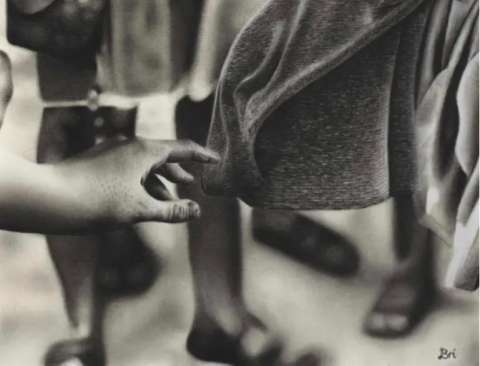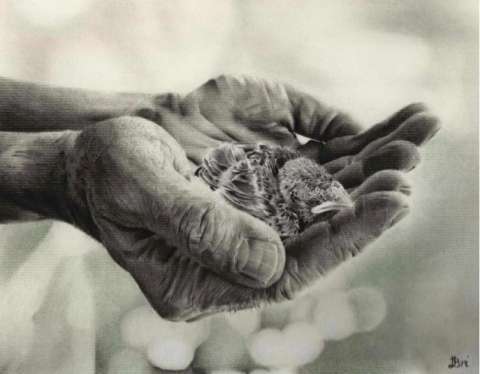Throughout scripture, we see an abundance of imagery and metaphors concerning the topic of refinement. The refining that all of us go through in our faith is a painful one, but necessary in the process of becoming more like Jesus. After I had my fair share of hurt and no longer recognized who I was, my identity masked by my own bitterness, my prayer was for the Lord to refine me and make me more like Him. Fortunately and unfortunately for me, the Lord answered my prayer and I have been going through that painful yet beautiful process ever since.
Often when I think of refining, although throughout scripture it describes it as the refiner’s fire, the imagery I see is that of chiseling stone when making a sculpture. The chiseling of the stone takes off the excess until what is left is a perfect work of art. To my surprise upon further inspection, this imagery is also used in scripture to describe this process. In Proverbs 11:2 AMP it states, ““When pride comes [boiling up with an arrogant attitude of self-importance], then come dishonor and shame, But with the humble [the teachable who have been chiseled by trial and who have learned to walk humbly with God] there is wisdom and soundness of mind.” I have always viewed pride as thinking higher of yourself than you ought, but there is another part of pride that I had an abundance of. I have learned that always looking inward at myself, my shortcomings and mistakes, and how everyone views me is also a form of selfishness and pride. Of course, my first reaction to this realization was panic and being overwhelmed by the weight of my own sin. However, after I had brought this to the Lord and pleaded with Him to refine me, I was met with nothing but love. This reminded me of the parable of the prodigal son. He left his father to pursue his selfish ambitions and squandered his wealth, resulting in working in the field feeding pigs. He finally came home expecting to work as one of his father’s servants and was only met with celebration and the love of his father welcoming him home.
1 Peter 1:6-7 NASB states, “In this you greatly rejoice, even though now for a little while, if necessary, you have been distressed by various trials, so that the proof of your faith, being more precious than gold which is perishable, even though tested by fire, may be found to result in praise and glory and honor at the revelation of Jesus Christ.” Although the Lord puts us through trials and tribulations to test our faith, we can have hope in the fact that we are being formed into His likeness and that He will not keep us as we are. While I have been going through my own set of trials, I did not detect that this was the Lord’s way of strengthening my faith and making me more like Him. In the moment I prayed for the Lord to take it away. However, when I look back at even the difference in myself from the past year alone, I am encouraged by how far the Lord has brought me and am able to rejoice and give Him glory even though I am not out of it yet. Although circumstances have not changed, the Lord has been changing my mindset and is changing me. Of course, I’m not perfect in this process. I don’t always treat it gracefully, but making that conscious effort to focus on the Lord instead of my circumstances everyday has been essential. This process takes time, much like the process of chiseling a sculpture made of stone. It is a meticulous and detail-oriented process of breaking away the excess, but the result is beautiful and makes the wait worth it.
References
AMP: Amplified Bible. Foundation Publications, Publisher for the Lockman Foundation, 2015
NASB: New American Standard Bible. Foundation Publications, Publisher for the Lockman Foundation, 2020







